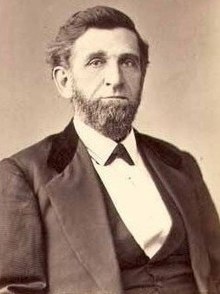- ↑ Weil, Julie Zauzmer; Blanco, Adrian; Dominguez, Leo (20 January 2022). "More than 1,700 congressmen once enslaved Black people. This is who they were, and how they shaped the nation". Washington Post . Retrieved 30 January 2022.
External links
- United States Congress. "Abram Comingo (id: C000658)". Biographical Directory of the United States Congress .
- Abram Comingo at Find a Grave
Abram Comingo | |
|---|---|
 | |
| Member of the U.S.HouseofRepresentatives from Missouri | |
| In office March 4, 1871 –March 3, 1875 |